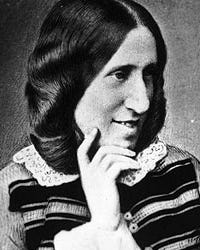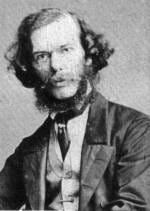Parallel Lives, Phyllis Rose
We all make up the people we love.
For a book to last for a long time, it is not necessary to be successful right away. Virginia Woolf used to be dismissed as an unimportant modernist. Jane Eyre was only seen as the equal of Wuthering Heights as recently as the 1960s. Moby Dick was a flop in Melville’s lifetime. Poets like Cowley used to be popular, while Donne had to be rescued for the canon. Without the initiative of his friends after he died, most of Shakespeare’s plays wouldn’t have been printed.
Over the long run, quality tends to rise. Ryan Holiday’s book Perennial Seller is a good explainer about why it’s better to write a book that sells for a long time, gradually gaining popularity over time, than it is to produce something that hits the bottom of the charts as quickly as it hit the top. A lifetime of steady sales is worth a lot more than a week at the top, especially when that’s just a jumping-off point for future oblivion.
There are plenty of good stories about books that have been rescued. Publishers like Virago and Persephone and Slightly Foxed specialise in bringing forgotten favourites back to the market. For every classic that started out ignored, there are dozens of former bestsellers you can only find on your grandmother’s shelves. This doesn’t just happen to certain genres of fiction. There was no new edition of Samuel Johnson for much of the nineteenth century.
Last year, Parallel Lives by Phyllis Rose was re-published by Daunt Books. (It was never out of print in America, where Rose was an academic.) It’s a wonderful book, with a strong following among the knowing, and we’re lucky to have it back. You ought to start stocking up copies now to hand out at Christmas.
Parallel Lives is five biographical essays about five unusual Victorian marriages. Each couple is looked at from a particular stage: courtship, honeymoon, middle age, late life, death. Thomas and Jane Carlyle are the scaffolding, providing the opening essay, as well as small prefaces to the others, and a terribly sad ending. Jane is the hero of the book and gets much more empowering treatment than the sympathy Froude offers. The way Rose describes Jane’s posthumous revenge on Carlyle is gripping.
Rose is vigorous in the way she deploys detail. Unlike Lytton Strachey, one of her oblique models, she is scrupulously scholarly. But she provides what Virginia Woolf called the ‘fertile fact’. These condensed narratives are full of telling, poignant, outrageous detail. This is biography at its most compelling.
The moral aim of the book is to show that there is a power structure in marriage that affects how people behave within it. George Eliot and Henry Lewes are the final, triumphant case study because they achieved their harmony as an unmarried couple. This is, I think, a slight misreading of the situation. Of the couples involved, Eliot and Lewes are the least personally susceptible to egotism and neuroticism, and the most free of interfering external elements. It seems quite plausible they would have been just as happy were they married.
Carlyle was a monster, born and bred. To be sure, it was a sudden change when he told the ambitious, intelligent Jane she would have to play little wifey just after they got married. But it seems a stretch to think he was ever going to be able to do what Henry Lewes did. Similarly, Ruskin’s problems stem as much from his own conceited psychology and his family’s, as from the power structure of marriage.
Dickens was a celebrity with a lifelong desperation to romanticise himself. His treatment of Catherine was harsh, unnecessary, and ridiculous in someone otherwise so successful and intelligent. But the horrors of his separation have been played out in thousands of divorces since. It isn’t the power balance of a specific set of marriage laws that make people behave badly to each other.
Rose doesn’t deny any of this. Parallel Lives is about as balanced and empirical a work of humanities criticism as you can get. But I think the extent to which she concludes that marriage is the result of power rather than personality goes beyond common sense, such as when she says: ‘Mill seems at times to be apologising for the collective disadvantage of the female sex, assuming the collective guilt of the male.’
It seems likely that, as well as overcompensating to make his case against marriage, which he rightly wanted to reform, that Mill was simply smitten, and that Harriet Taylor was in fact a powerful influence on his work, even if her written trail is not as impressive as Mill makes her sound. Some people are at their best collaborating and talking. Rose’s best insight on the Mills, and other marriages, is the role of the imagination. ‘Happy marriages seem to me those in which the two partners agree on the scenario they are enacting, even if, as was the case with Mr and Mrs Mill, their own idea of their relationship is totally at variance with the facts.’
The cruel and inflexible Victorian marriage laws are an unavoidable part of the Mills’ story. And they play a part in the dynamic the Mills established. (Rose surprised me when she described Harriet Taylor as a shrew, but it’s not an entirely invalid description.) But their response to that situation was unique, if not, at times, completely bizarre.
This is partly because Victorian marriage laws were so outrageous. But like all the couples in this book, the Mills were exceptional. And in our own little ways, we are all exceptional inside our imaginations and the imaginations of our partners. Rose understands this and the book is full of intelligent sympathy. Unlike Strachey, she achieves the goal he set out: 'to illustrate, not explain'.
She is at pains to take (and present) George Eliot on her own terms, for example. It's easy for modern people to be disappointed in Eliot's feminism, for example, but Rose works to help us see things as they were for Eliot not as they ought to have been. She shows us Eliot’s sense of duty, her belief in spiritual obligation, without twisting it to her theme, as Strachey would have done. She has scholarship and sympathy where he had alliteration and rhetorical flourish.
I think Rose overstates the case for marriage as a power structure. Marriage has been reformed, redefined, a successful institution in a sceptical, liberal age. Not all husbands end up like cruel old Dickens, and not everyone who co-habits has the genteel bliss of Eliot and Lewes. Marriage reflected the problem as much as it created it. To that extent it’s a book of its time. But it’s a live, relevant question, and the portraits she creates are some of the best biographical writing you can read. The way people live is endlessly fascinating.
And telling complicated stories is the real purpose she wants to achieve. To do that, she often thinks like an economist, relating the importance of events at the margin, or reformulating Gresham’s law: 'Easy stories drive out complicated ones.' The disappointingly limiting plots we use to tell our own marriage stories, are what Rose really wants to take aim at. She thinks that is a cover for the power structure of marriage.
You don’t have to entirely agree with her political opinions to get the force of her point about the personal side of marriage. ‘Marriage, whether we see it as a psychological relationship or a political one, has determined the story of all our lives more than we have generally acknowledged.’ Rose is arguing for marriages that bring out our inner richness and complexity. We want marriages like George Eliot’s, not Charles Dickens’. Marriage should be empowering, not limiting. Her statement in the preface that people should be more cautious and prepared about the marriages they make is startlingly conservative (even if her preference for less marriage isn’t) and shows you the extent to which this is an independent, interrogative book, rather than an ideological one.
The role of the imagination, and the extent to which we are able to sympathise with each other is perhaps the real heart of her study, which comes through so strongly in the details, and which gives Parallel Lives a strong romantic core, with the double edge that that implies: ‘we all make up the people we love.’
Recent posts on similar topics
The escape from irony. Scenes from a Marriage and Marriage Story.
Thanks for reading. If you’re enjoying The Common Reader, let your interesting friends know what you think. Or leave a comment at the bottom.
If you don’t subscribe to The Common Reader, but you enjoy reading whatever’s interesting, whenever it was written, sign up now.




